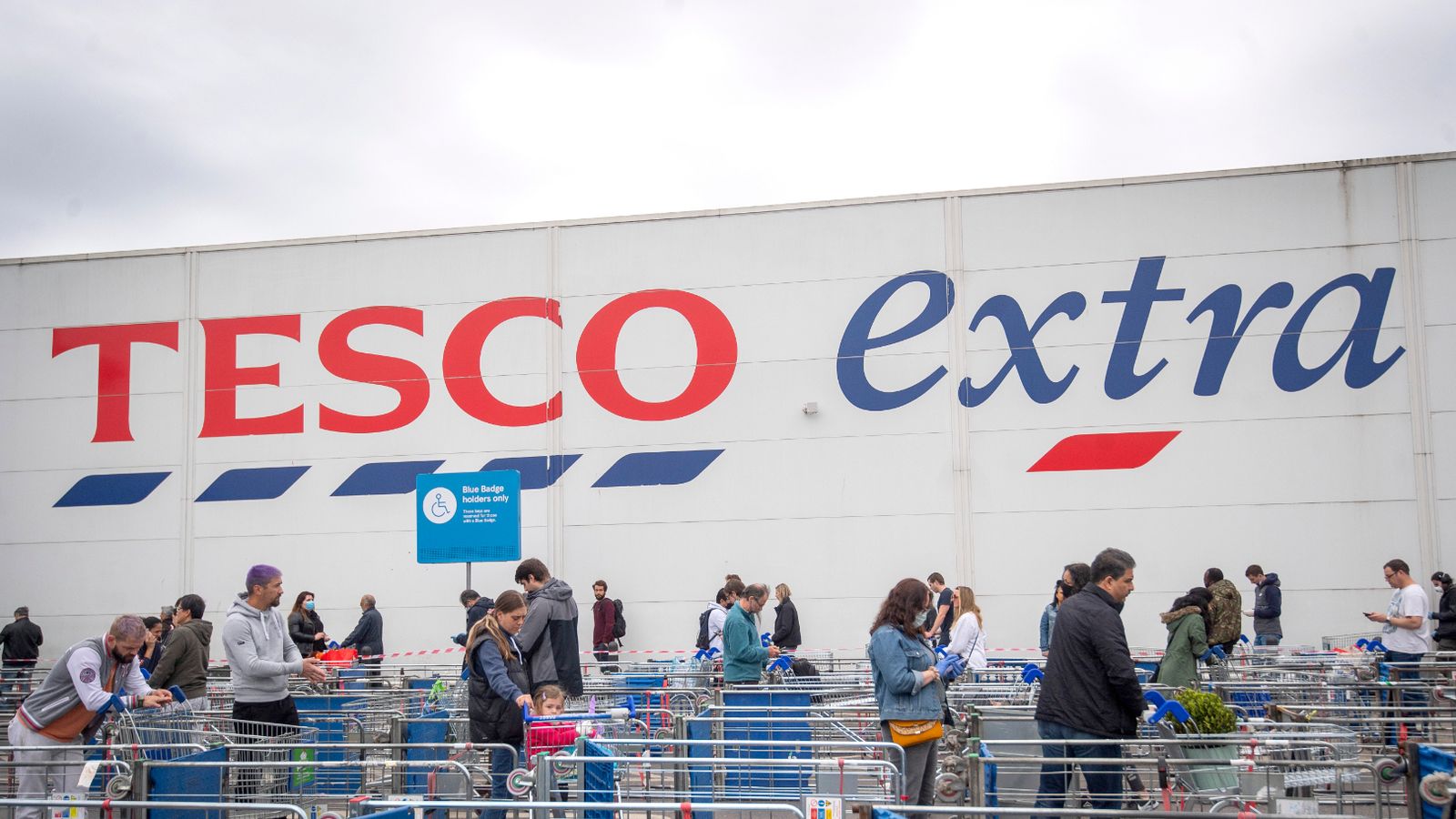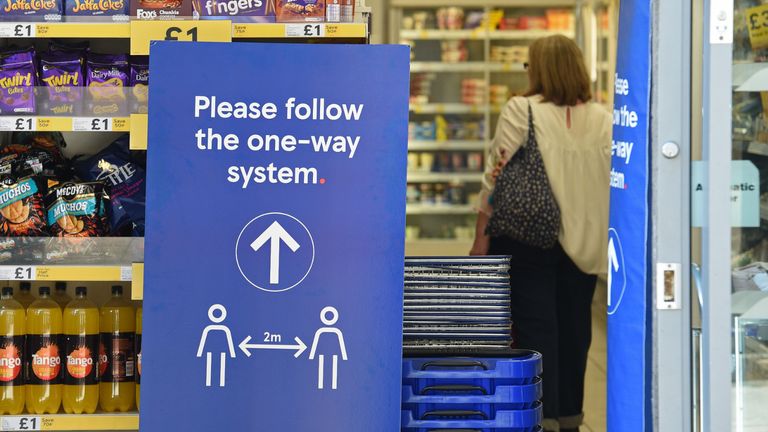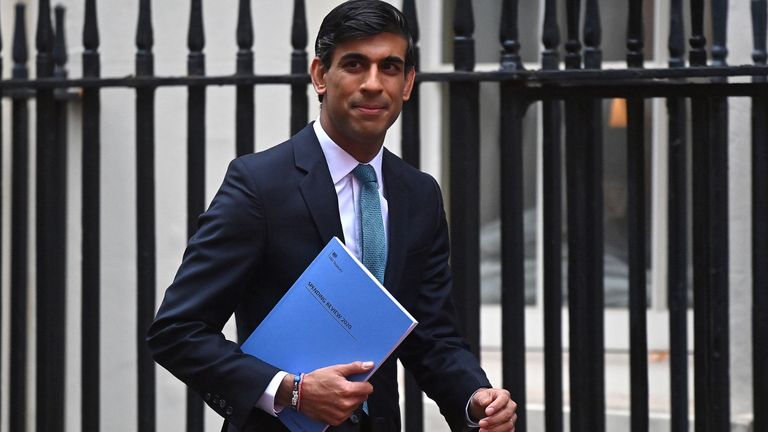Tesco’s decision to return £585m in business rates relief immediately created waves in the City.
Within minutes of the announcement hitting screens at 7am, the chief financial officer of another FTSE 100 retailer was contacting an adviser in the Square Mile to ask whether his business should do the same.
He was told: “There are no prizes for being last in the queue.”
That response reflects the likelihood that other retailers will be expected to follow Tesco’s example.
It is no coincidence that shares of Sainsbury’s, which is expected to receive £498m in business rates relief and Morrisons, which is expected to receive £279m, were among the biggest fallers on the FTSE 100 on Wednesday.
So too were shares of Kingfisher, the parent company of do-it-yourself retailer B&Q, which has received £130m.
There is no doubt that Tesco’s move, only weeks into new chief executive Ken Murphy’s tenure, will have wrong-footed its competitors.
But many of them will be bridling at the prospect of having to return this money.
Contrary to popular belief, those retailers who have remained open throughout the various lockdowns have not been profiteering from the pandemic, even though in cases their sales figures may have been flattered by panic buying or, in the case of the supermarkets, by food and drink purchases by customers who would otherwise be spending that money in pubs and restaurants.
Those extra sales have not shown up in the bottom line – in profits – because of the extra spending involved in making stores safe, buying personal protective equipment (PPE) and taking on extra staff to cover colleagues who were sick or self-isolating.
As Tesco itself put it on Wednesday morning: “Every penny of the rates relief we have received has been spent on our response to the pandemic.
“Our latest estimate at our interim results in October was that COVID-19 would cost Tesco [around] £725m this year – well in excess of the £585m rates relief received.”
That will also be true for Tesco’s competitors.
Sainsbury’s pointed out at its half-year results that, in the six months to mid-September, extra spending to protect its customers and employees from COVID-19 cost it £290m – again more than the £230m it received in business rates relief during the period.
Similarly, in its half-year results, Morrisons detailed how the £155m in extra costs it had incurred during the first half of its financial year as a result of COVID-19 were only partially offset by the £93m in business rates relief that it received during the period.
So this return of rates relief by Tesco is not just a gesture – it will hit the company directly.
Sreedhar Mahamkali and Samantha Osborne, food retail analysts at the investment bank UBS, told clients in a note this morning: “The accounting treatment of the repayment of the rates relief has not yet been confirmed. If the company makes a decision to treat rates relief as exceptional, it will also likely treat costs as exceptional.
“Excluding the repayment, Tesco’s guidance [to the market on this year’s earnings] is unchanged – retail operating profit before exceptional items for 2020-21 is expected to be at least at the same level as 2019-20 on a continuing operating basis.
“However, from a cash perspective, we would expect a negative impact of £535m in full year to 2021 and £50m in the full year to 2022, although clearly the latter has not been incurred yet.”
Accordingly, should the other supermarket multiples return money, it will hit their cash flows too.
Tesco may even be calculating that it can more easily afford to make this move than some of its competitors. The ones to watch out for most closely in this regard are Aldi and Lidl, the German discounters, because neither of which have disclosed how much they have received in rates relief. It is reckoned to be getting on for £110m each.
Some investors may be reflecting that given the government’s dreadful record on wasteful spending during the pandemic, as highlighted by the recent National Audit Office report into the procurement of PPE, Tesco might be trusted to spend the money more effectively itself.
But that was not the point of this repayment. As with those companies which returned furlough money earlier in the year, it is all about signalling that Tesco is a good corporate citizen.
According to data from a Freedom of Information request by the Financial Times last month, almost £400m has been returned to the government in furlough money so far.
Those making payments included the housebuilders Barratt, Taylor Wimpey and Redrow, the distribution giant Bunzl, the retailers Cakebox and Ikea and the bookmaker William Hill.
There was an element of pragmatism, too, in those payments. In several cases, such as the housebuilders, returning furlough money made it far easier to resume paying dividends without risking public opprobrium.
Nonetheless, Tesco will emerge from this episode with credit, even though newspapers such as The Times have been urging it to return the money it received in rates relief for some time.
And it has guaranteed that all of its competitors will face difficult questions about whether they plan to do the same.
Now it is time for ministers to make a gesture of their own. It would be good to see this money being returned by Tesco recycled in support for those hospitality businesses fighting for their lives.



